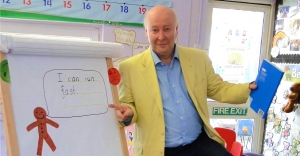Talk for Writing
Lower Wortley Primary School implemented the Talk for Writing approach to teaching English from January 2016. Below are more details about what this approach entails and why we adopted it.
Talk for Writing enables children to imitate the key language they need for a particular topic orally before they try reading and analysing it. Through fun activities that help them rehearse the tune of the language they need, followed by shared writing to show them how to craft their writing, children are helped to write in the same style. Schools that have adopted the approach have not only increased their children’s progress but have found that both children and teachers love it.
Talk for Writing is powerful because it enables children to imitate the language they need for a particular topic orally before reading and analysing it and then writing their own version. It build on three stages of teaching:
1) Imitation - the children learn a text and the language they need
2) Innovation - the children adapt the model text with ideas of their own
3) Invention - the children create their own text using the language and skills that the model taught them.
Further detail about the long term plan for Talk for Writing and coverage of the English Curriculum can be found in each year group section of the Curriculum pages:

The Talk for Writing approach was develop by Pie Corbett, an educational writer and poet. He is well known for promoting creativity in the classroom and has experience as a teacher, head teacher and OFSTED inspector. He regularly lectures on education around the world and the UK government consult with him as an educational advisor.
The video below is of Pie Corbett explaining more about Talk for Writing.

